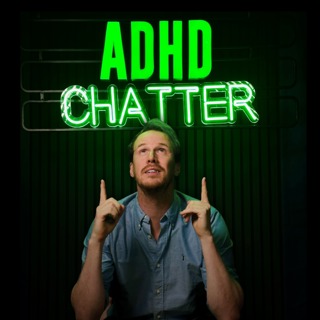Om episode
Alex chats with Matt Hancock, the former UK Health Secretary, on a range of important issues affecting the Neurodivergent community. Topics:00:00 Trailer 01:28 How much consideration was there for the neurodiverse community when considering putting the country into Lockdown04:56 In the past few years you've come up against a lot of pressure, did that give you a new sense of empathy with regards to people who have felt misunderstood their whole life, i.e in this case, the neurodivergent community?08:25 Washing machine of woes10:22 You've been outspoken about Dyslexia, but do you think you stray into the realm of any other neurodivergent behaviours? 13:47 How is it that a clearly very bright person such as yourself can miss being dyslexic until the age of 18 or 19?15:26 What measures can be taken within the schooling system to make sure these Neurodivergent behaviours are recognised from an earlier age?16:27 Advice to parents if the school doesn’t take neurodiversity seriously 20:41 How do you think not being diagnosed impacted your personal progression and development?26:45 How can teachers identify the unique learning requirements of individual children30:42 What plans would you enforce to reduce the NHS ADHD diagnosis waiting list?35:31 What would you say to a child that feels ‘different’38:25 How parents can help their child find their passion 39:35 When you were Health Secretary, did you think ADHD and other neurodivergent conditions were taken seriously by the powers that be and if not, why do you think that was?41:36 Much like ADHD, I think people can often have a reductive view on what Dyslexia is. What do you think is involved in Dyslexia that people don't know about? 46:00 I don't know what the exact statistics are, but around 0.5% of the population went to Oxbridge. You were at Oxford and openly say you have dyslexia. Even with that holding you back, what is it about the rest of your brain that got you into the most prestigious university in the world?48:14 You must have seen neurodivergent people at Oxford with some incredible minds, diagnosed and presumably undiagnosed. Do you think excelling to an unusual degree, in one particular area, is actually dependent on neurodivergence? 48:56 I remember reading an interview with an ex-CIA agent who said the CIA are predominantly made up of Neurodivergent people and I can only assume it's true of the MI5 because they have a propensity to connect ideas that a cognitively typical person wouldn't. If Neurodivergence is such a beneficial force if channelled correctly, why has screening taken so long to employ in schools?53:45 Should people put ADHD on their CV56:44 What can we all do to convince companies of the benefits of a neurodivergent workforce 60:25 Why have the neurodiverse community been missed for so long01:04:06 ADHD item01:05:06 What has the last 5 years taught you about humanity?01:06:09 Closing advice for the neurodivergent community Support ADHD Chatter:LinkedIn 👉 https://bit.ly/3m1qm8QInstagram 👉 https://bit.ly/3KuNXIrTikTok 👉 https://bit.ly/3ZxZNGdThis episode has been produced for entertainment purposes only and is in no way meant to be taken as medical advice or advice in any way. Hosted on Acast. See acast.com/privacy for more information.

